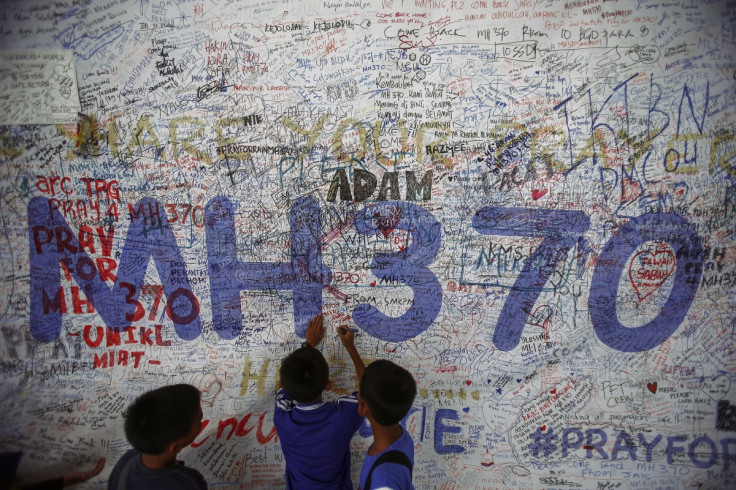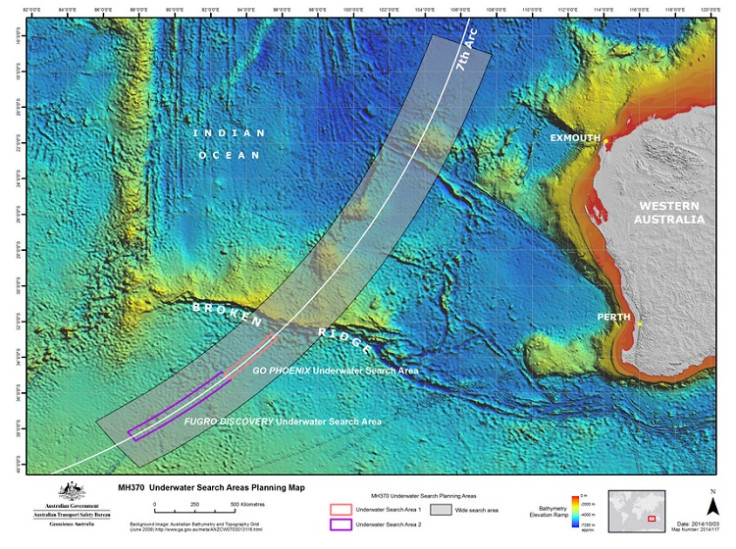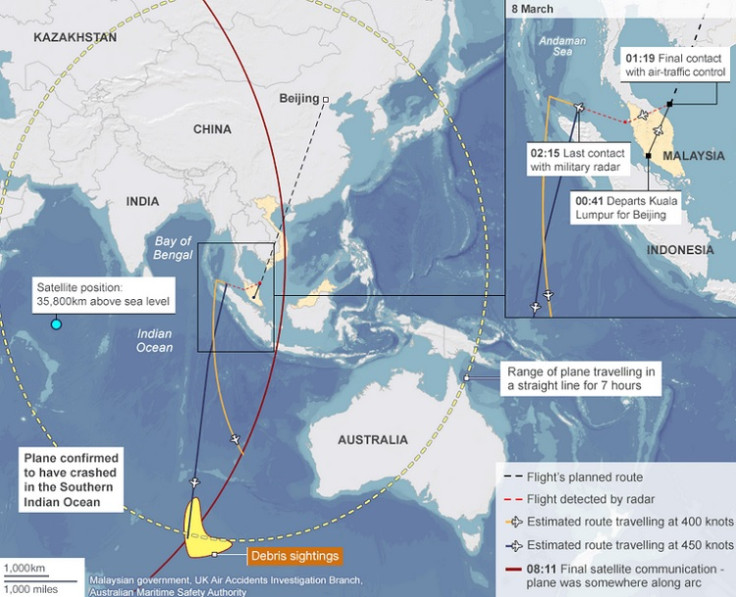Missing Malaysia Airlines MH370 one year on: What we know so far

The fateful day when MH370 disappeared without trace with 239 passengers on board was 8 March 2014, one year ago today.
Families of the victims are still grasping to the hope that search vessels will discover the Boeing 777 somewhere in the depths of the Southern Indian Ocean.
But chances of finding the plane remain incredibly bleak with teams having covered 40% of the 60,000 sq km search area so far - and only a few shipping containers have been detected along the way.
And with only three months to go until the main search ends, it does not give vessels, such as Go Phoenix and Fugro Discovery, much time to find the doomed airliner along the so-called seventh arc.

Australia's Prime Minister Tony Abbott did not raise expectations either on Thursday (5 March), when he announced the $90m (£60m) search may be scaled back.
"I do reassure the families of our hope and expectation that the ongoing search will succeed," he told Parliament in Canberra.
"I can't promise that the search will go on at this intensity forever but we will continue our very best efforts to resolve this mystery and provide some answers."
Martin Dolan, chief commissioner of the Australian Transport Safety Bureau (ATSB), who was previously optimistic about discovering the plane, said he could not "guarantee it will happen".
The disappearance of MH370 has been dubbed one of the greatest aviation mysteries of all time.

Satellite data has led experts to believe the plane crashed into the Southern Indian Ocean after it vanished from radar and veered off its flight path to Beijing from Kuala Lumpur - for reasons still unknown. No distress signal was sent out.
Other theorists have since claimed it went towards Antarctica or believed it crashed into the South China Sea. Oil rig worker Mike McKay, 57, is convinced the official search for the plane is in the wrong place.
Officials said it flew back into Malaysian airspace and continued for seven hours before running out of fuel and crashed into the Indian Ocean. Malaysia's military has since been heavily criticised for failing to scramble jets towards the plane when it was detected flying back into Malaysian airspace. It said it failed to act because the plane was not deemed hostile.
But Malaysia Prime Minister Najib Razak said the flight's transponder had been "deliberately disabled" before the plane changed course. He said at the time the "movements were consistent with the deliberate action of someone on the plane" - although he stopped short of labelling it a hijacking.
After radar was lost data was picked up between the plane and a ground station satellite above the Indian Ocean, (identified by British company Inmarsat), which converted seven so-called "pings" enabling the firm to calculate possible routes the plane had flown in: the northern corridor between Thailand and Kazakhstan and the southern corridor between Indonesia and the Southern Indian Ocean.
There were 227 passengers on board, 153 Chinese, 38 Malaysians - 12 of which were crew members led by captain Zaharie Ahmad Shah, 53, and co-pilot Fariq Abdul Hamid, 27. Other passengers were from Iran, US, Canada, Indonesia, Australia, India, France, New Zealand, Ukraine, Russia, Taiwan and the Netherlands.
The Malaysian government officially declared the disappearance of Malaysia Airlines flight an accident in January - presuming all 239 people on board were dead, which greatly distressed the victims' families.
"The most frustrating thing is that they [were planning] an announcement to the world first, then only to the next of kin," said Wesley Walter, whose brother-in-law was on the flight. "Why are the next of kin being treated this way?".
© Copyright IBTimes 2025. All rights reserved.




















